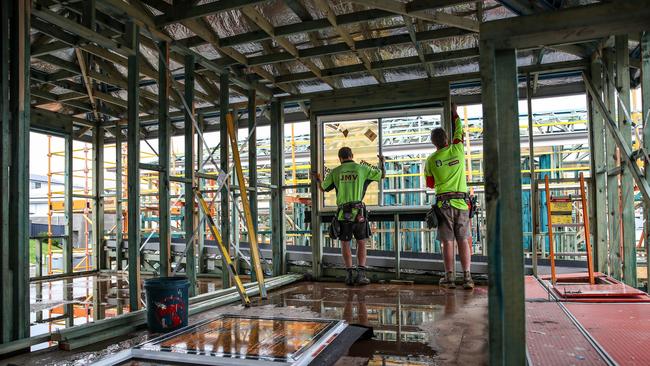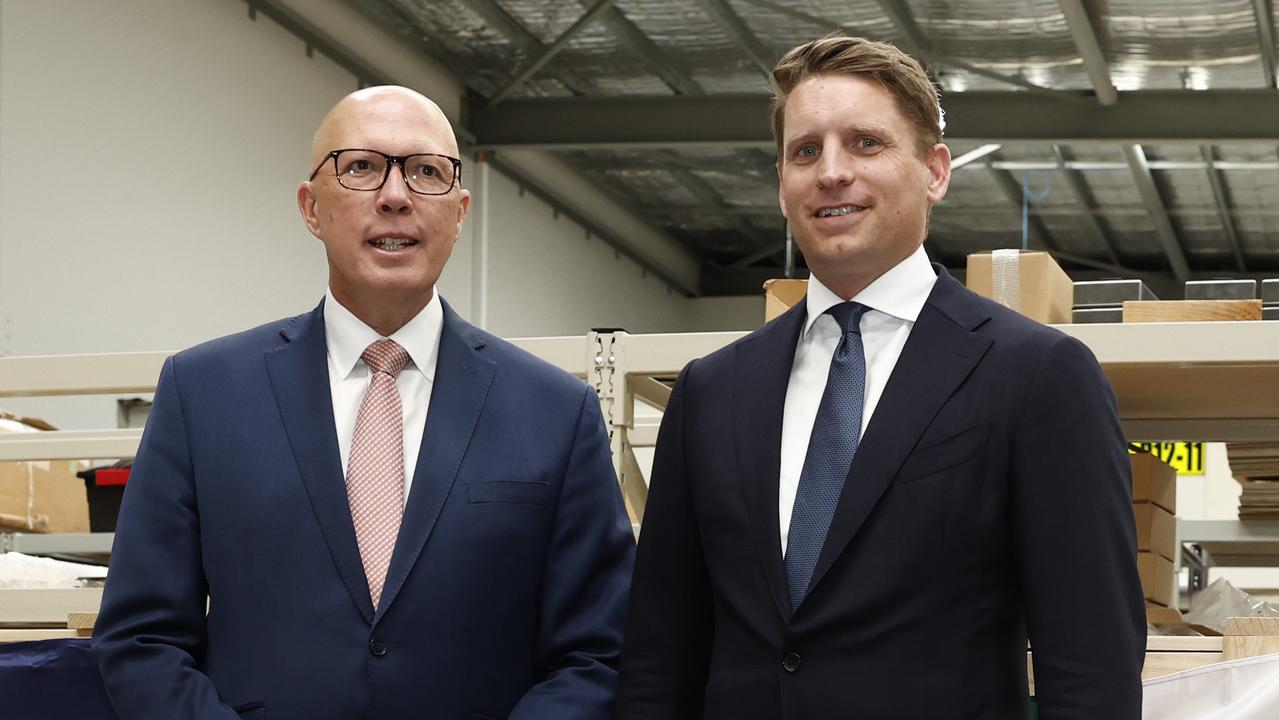
To improve housing affordability, we need to change tack in a dozen areas – land zoning, migration, trade skills, regulation, financing and much else, including tax – so that we can build more homes in areas where people want to live.
It’s that simple and, as our dismal record on construction shows, it’s also unnecessarily difficult to hit the real target: supply, supply, supply.
The property lobby has set a reasonable test for any policy shift: do the proposed changes grow or shrink the supply of new homes in Australia?
Anthony Albanese and the states have committed to 1.2 million new homes by 2029; that goal is already in jeopardy because of a shortage of trades workers and a lack of will.
Tax concessions for housing are huge, reflecting a societal compact that shelter is a necessity and we want to encourage more of it. Same goes for supporting philanthropy, research and development and other worthy social initiatives.
According to the budget papers, the estimated revenue forgone last financial year for rental deductions was $27bn; the capital gains tax discount for individuals and trusts was $19bn.
The big tax and spenders see a vast pool of interventionist possibilities with the added bonus of class warfare.
Tax concessions for housing are routinely seen as the villain by voters.
In its latest True Issues survey, JWS Research tested support for potential reforms to Australia’s tax system and economic management.
It found strong support among voters for “major changes to negative gearing and capital gains tax to try and slow house price growth and make homes more affordable”.
Among Greens voters, the research found 60 per cent either “strongly” or “somewhat” support the proposed measures; among Labor voters, it was 55 per cent, but only 33 per cent for Coalition voters.
Whether those policies work or not is another matter entirely.
For instance, there could be brutal consequences for some if the tax concessions are ditched, including young borrowers who are “rentvesting”, by buying a cheaper first home in a far-flung suburb, while renting closer to their workplace and friends.
Previous modelling by Deloitte for the Property Council shows that the changes taken to the 2019 election by Labor under Bill Shorten would lead to a 4 per cent squeeze on the home building pipeline.
Centre for Independent Studies chief economist Peter Tulip has declared tax concessions were a distraction in the broader housing story.
The former senior Reserve Bank economist argues respected researchers, using different approaches, have estimated the effect of negative gearing and capital gains tax concessions on housing prices and “repeatedly found this effect to be tiny”: from around 1 per cent to 4 per cent.
Tulip’s research attributes the faster growth in housing prices to lower after-inflation mortgage rates and higher immigration in the pre-Covid period.
Many experts, including officials in Treasury and Finance Department, believe our tax system is not fit for purpose.
Population ageing and a leaky base mean we need to be asking serious policy questions about tax sustainability and intergenerational fairness.
Given palpable political timidity in all things tax reform, bureaucratic inertia follows.
The status quo is a lifeboat of sorts for officials in a world where Jim Chalmers continues to spurn strict fiscal rules.
As former senior Treasury official Paul Tilley wrote in Mixed Fortunes, his recent history of tax reform in Australia, the full deductibility of interest payments for investment housing is widely seen as establishing an incentive for negative gearing.
“This, however, is a misunderstanding of the tax system, as expenses associated with income-earning activities are generally tax deductible,” Tilley writes.
“The effective tax rate for investment housing is unaffected by gearing.
“To the extent there is a tax concession regarding investment housing, it is on the income side with the inclusion of only 50 per cent of the capital gain in taxable income, and only on a realisation basis.
“A future tax reform agenda regarding housing, therefore would best be considered as part of a general approach to capital gains taxation.”
Tilley argues it may be worth considering whether that discount, introduced in 1999, is excessively generous and whether its connection to the rate of inflation should be re-established; the previous system ensured only real gains were taxed.
We can do better on taxing savings as well as encouraging more housing supply; what we can’t afford is to get distracted from the main game.
Let’s not snuff out policy debate on the big issues, because at least it keeps housing affordability front and centre in the public square.
As new federal Housing Minister Clare O’Neil said about the Help to Buy legislation spurned by the Greens and Coalition in the Senate, no single initiative is a “silver bullet” for Australia’s housing crisis.
But by fiddling with tax concessions, we risk more populist folly and shooting ourselves in the foot.







Making big changes to negative gearing and capital gains tax excites Greens and progressive voters, but it’s a sideshow in the housing debate.